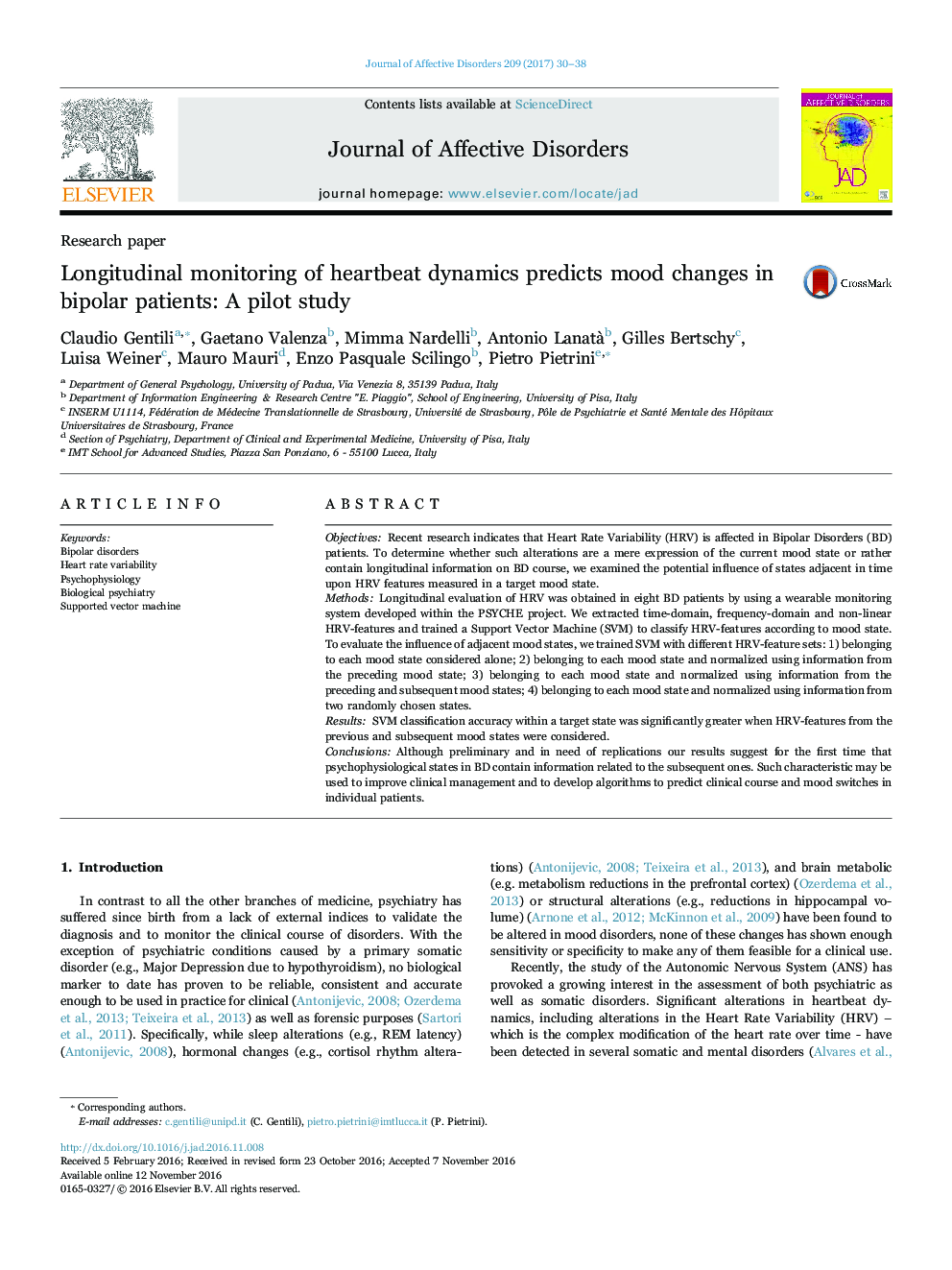| Article ID | Journal | Published Year | Pages | File Type |
|---|---|---|---|---|
| 5722263 | Journal of Affective Disorders | 2017 | 9 Pages |
â¢Heart Rate Variability was linked to somatic and mood disorders.â¢We used supported vector machine (SVM) to classify mood states in bipolar disorder.â¢SVM performed better if previous and subsequent mood states (MS) were considered.â¢MS are not independent from each other but connected on a continuum.â¢Evaluation of psychophysiological continuum may be relevant in clinical management.
ObjectivesRecent research indicates that Heart Rate Variability (HRV) is affected in Bipolar Disorders (BD) patients. To determine whether such alterations are a mere expression of the current mood state or rather contain longitudinal information on BD course, we examined the potential influence of states adjacent in time upon HRV features measured in a target mood state.MethodsLongitudinal evaluation of HRV was obtained in eight BD patients by using a wearable monitoring system developed within the PSYCHE project. We extracted time-domain, frequency-domain and non-linear HRV-features and trained a Support Vector Machine (SVM) to classify HRV-features according to mood state. To evaluate the influence of adjacent mood states, we trained SVM with different HRV-feature sets: 1) belonging to each mood state considered alone; 2) belonging to each mood state and normalized using information from the preceding mood state; 3) belonging to each mood state and normalized using information from the preceding and subsequent mood states; 4) belonging to each mood state and normalized using information from two randomly chosen states.ResultsSVM classification accuracy within a target state was significantly greater when HRV-features from the previous and subsequent mood states were considered.ConclusionsAlthough preliminary and in need of replications our results suggest for the first time that psychophysiological states in BD contain information related to the subsequent ones. Such characteristic may be used to improve clinical management and to develop algorithms to predict clinical course and mood switches in individual patients.
